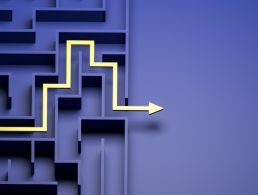People have been more likely to experience burnout of late, but do you know what the signs of burnout actually are?
Burnout has been a problem for many workers for years, but the last year and a half could give rise to more burnout than ever among the global workforce.
Unsurprisingly, frontline workers have been under severe pressure throughout the Covid-19 pandemic, but other workers are not immune from the effects of the pandemic.
One example is cybersecurity professionals, who had to deal with the security ramifications of a mass move to remote working as well as a dramatic acceleration of digital transformation and an onslaught of cyberattacks.
But even just for the regular knowledge worker who had to move from the office to their homes due to the pandemic, the likelihood of burnout has increased.
A survey from earlier this year highlighted the level of overtime that workers in Ireland have been putting in since the start of the pandemic, with many remote workers finding it harder to disconnect.
However, it’s important not to conflate burnout with working long hours. While putting in continuous overtime can be a contributing factor to burnout, it doesn’t mean those who work within their designated hours are not in danger of suffering in the same way.
According to the World Health Organization (WHO), burnout is an occupational phenomenon “resulting from chronic workplace stress that has not been successfully managed”.
And that stress does not only come from too many hours. So how do you recognise the signs of burnout?
Feeling disengaged with work
Cynicism or having a mental distance from your job is one of the dimensions mentioned by WHO as a clear sign of burnout.
What was once engaging and challenging for you is no longer motivating you. You might suddenly feel like you don’t care about the job you’re doing and this makes it harder to get up in the morning.
You might even feel completely disillusioned with the job to the point where you feel like you hate it even though you never felt like that before.
Physical symptoms
While burnout is not considered a medical condition, it can manifest with very physical symptoms.
Because burnout comes as a result of ongoing high-stress situations, your body will react by releasing cortisol, which is also known as the stress hormone.
This puts your body under intense stress and when this is happening on a continuous basis, your body will essentially wear itself out, resulting in aching muscles, headaches and stomach problems, to name a few.
Exhaustion
Along with the physical symptoms that may be manifesting, the burnout you’re feeling is also most likely going to lead to intense exhaustion, both emotionally and physically.
Burnout can play havoc on a person’s sleep cycle, especially if that excess cortisol is keeping them awake late or waking them up with feelings of anxiety in the middle of the night.
However, even those who appear to have had an uninterrupted sleep can wake up feeling constantly drained or will find their energy levels depleting quickly throughout the day as a result of burnout. This reduction in energy is another key dimension of burnout according to WHO.
Reduced performance and productivity
WHO’s third dimension of burnout is “reduced professional efficacy”. This means that along with being exhausted and working through a really stressful time in work, you are also more likely to see your own job performance slipping.
You may find yourself procrastinating despite your increasingly rising to-do list and your cynicism and disengagement from the job is stopping you from even wanting to tackle it.
Another major sign of burnout is cognitive problems such as difficulty concentrating or struggling with remembering things. These cognitive issues along with your exhaustion are bound to have a ricochet effect on your performance.
Extreme emotions
Unsurprisingly, prolonged burnout and subsequent exposure to some or all of the above symptoms can wreak havoc on your emotional state.
Your defence systems are severely lowered, which means you’re more likely to feel overwhelmed, angry, bitter, upset or that you’re about to burst into tears at any moment.
You could find yourself lashing out unfairly or quick to frustration or anger at certain situations. These emotions will continue to be fuelled by an ongoing cycle of stress, exhaustion, disengagement and could lead to chronic burnout.
What to do
If any of the above sounds familiar, it’s important to first acknowledge the problem and stop yourself from thinking you’ll be fine if you just get through the next week/month/project.
If you’re suffering from burnout now, it’s only going to get worse, so the first step is to talk to your manager about how you’re feeling. Often, one of the best things you can do to start healing from burnout is to take some time off and engage in some self-care.
Self-care does not have to mean wellbeing retreats or yoga classes. It’s about re-engaging with your body and putting healthy habits back into your life while you take a mental break from work.
This means resetting your sleep patterns, making sure you take some time to exercise and eating reasonably healthy to give your body the best chance at building resilience.
Don’t miss out on the knowledge you need to succeed. Sign up for the Daily Brief, Silicon Republic’s digest of need-to-know sci-tech news.




